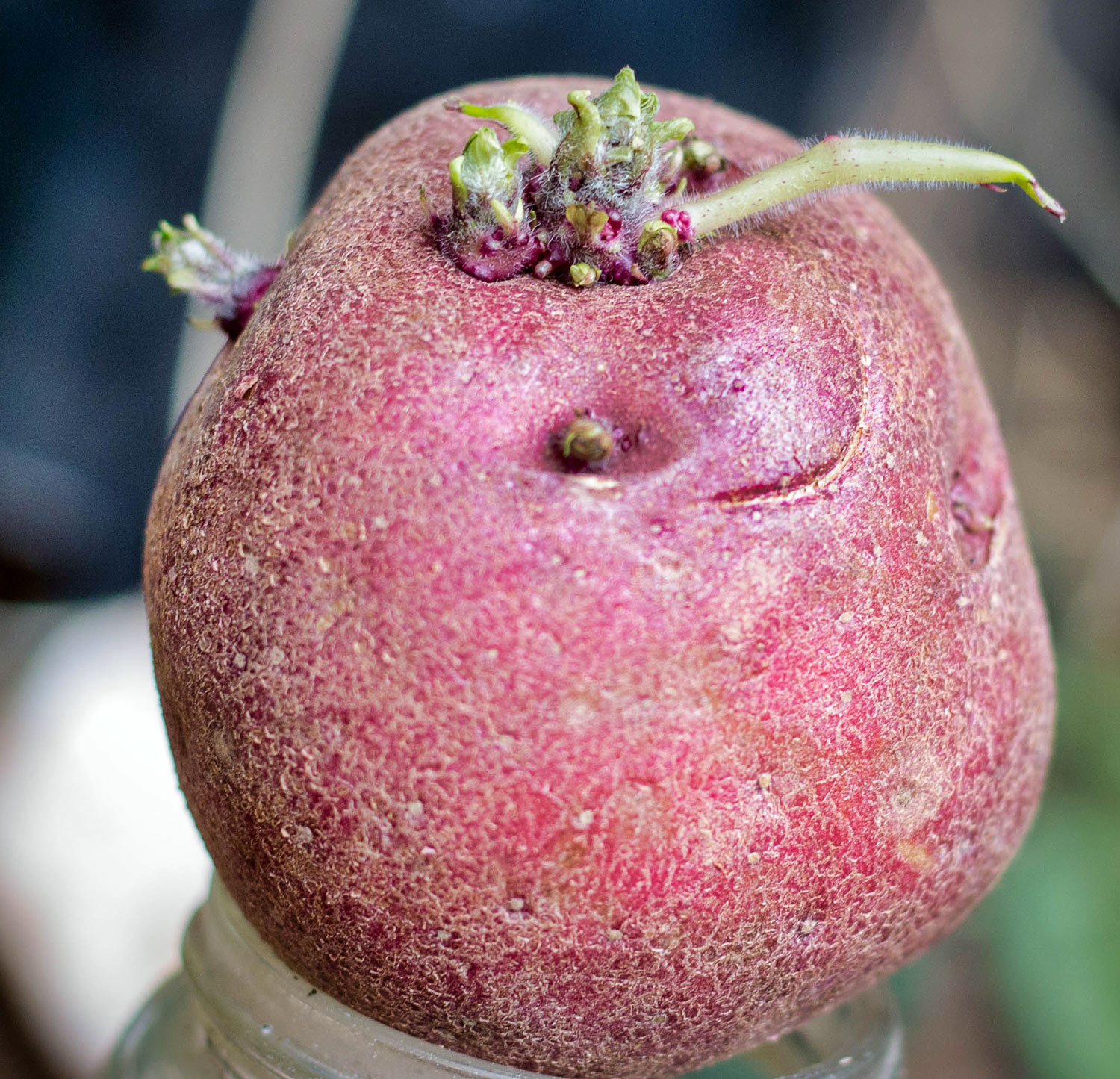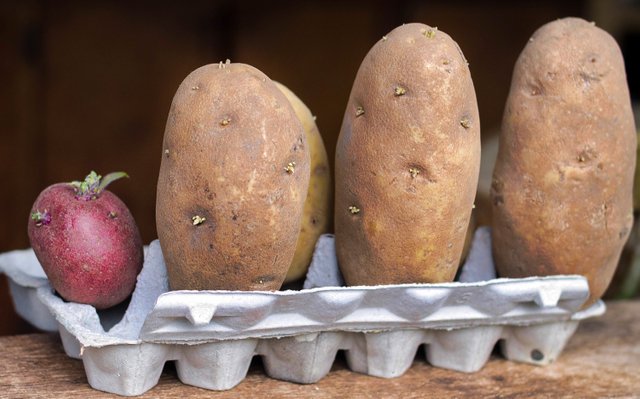With the end of March comes potato planting season in the Pacific Northwest (Cascadia). You can plant these delectable tubers from now until May for an August or September harvest, and that means not only getting your beds ready and choosing seed, but also “chitting.”

This potato chitted on it's own, as it was in an area that had some light. Ideally, though, you'd set them up with ample light and warmth. You'll also want more than just one sprout.
What is ‘Chitting’?
‘Chitting’ is a form of sprouting your potatoes before planting. We all know that potatoes left for too long will sprout on their own, but chitting is a little different. Potatoes that have been properly chitted have nice, strong, healthy sprouts—not those white stringy things you often see on old potatoes from your cupboard. In essence, you’re starting your seed indoors before planting outside.
Do I Need to Chit My Potatoes?
Not necessarily. Market farmers certainly don’t bother, as they’re dealing with large crops. But many home gardeners swear by it, saying that it not only helps you get a start on the season, but allows creates larger, higher quality potatoes and a better overall crop. If you were savvy and got your potato seed back in January or February, your chitted potatoes would be the perfect size for planting out about now, giving you a full 4-6 week lead on the season. But even if you haven’t bought your seed yet, you can still start the chitting process for another week or so—especially if you’re not yet ready to plant.
How to Chit
Chitting is super easy. To begin with, find a light, warm place that is both out of direct sunlight and frost free. Find a way to place them upright, setting the end with the most 'eyes' face up. If you’re a gardener who prefers smaller seed (so you don’t have to cut them) and you don’t have a lot, you can use egg cartons to prop them up. If you’re planting larger potatoes or in larger amounts, you can use seed trays with newspaper bunched around them to keep the potatoes upright.
In about 4-6 weeks you should have short, stout, green sprouts. (If they’re white and stringy, it means they need more light.) Ideally you’ll have only 3-4 chits per potato, so rub off the weaker ones. Once they’re about an inch long they’re ready to plant out. Be careful when planting, though, as the chits are pretty brittle and break easily. Since our potato planting season is from the end of March through May, this means you can chit any time from January up through the end of March.

I'm obviously quite late on my chitting, but since my potato bed isn't really ready yet and it's actually been snowing outside these last few days, I'm not fussed. I figure I'll get in as much chitting as I can before planting. Setting them up this way allows me to have them grow even while the beds aren't ready.
Welcome to steemit! If you are ever looking for a group, actually a community, of homesteaders/gardeners/self-sufficient like-minded people, I am the moderator of a group here... also the "un"official ambassador to the group.
let me know and I can post an invite link here for you!
Downvoting a post can decrease pending rewards and make it less visible. Common reasons:
Submit
Sure, I'd love the link.
Downvoting a post can decrease pending rewards and make it less visible. Common reasons:
Submit
This is really good for people to know. Better to plant a nice strong sprout that you know will grow then guessing if the potatoes will sprout at all once they go into the ground.
Downvoting a post can decrease pending rewards and make it less visible. Common reasons:
Submit
My experience with potatoes has been tha those long white stringy sprouts just don't do very well in the garden when you plant them that way. The short stubby sprouts that you talk about in this post seem to do way better because they haven't already used up a lot of their sugars like the long spindly sprouted potatoes did.
Downvoting a post can decrease pending rewards and make it less visible. Common reasons:
Submit